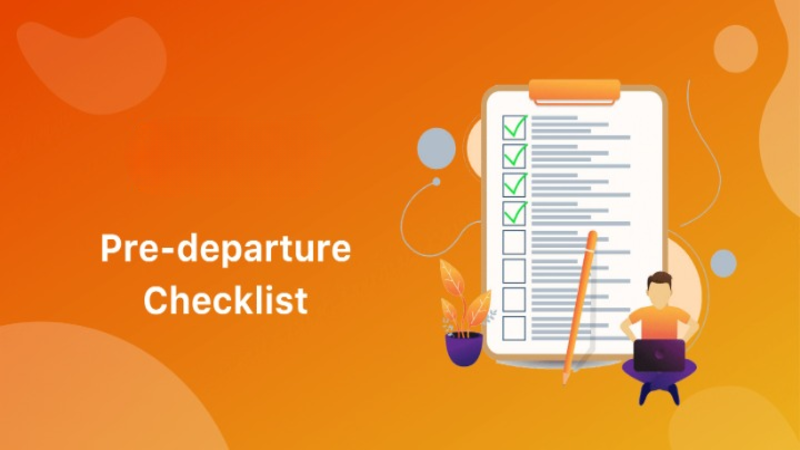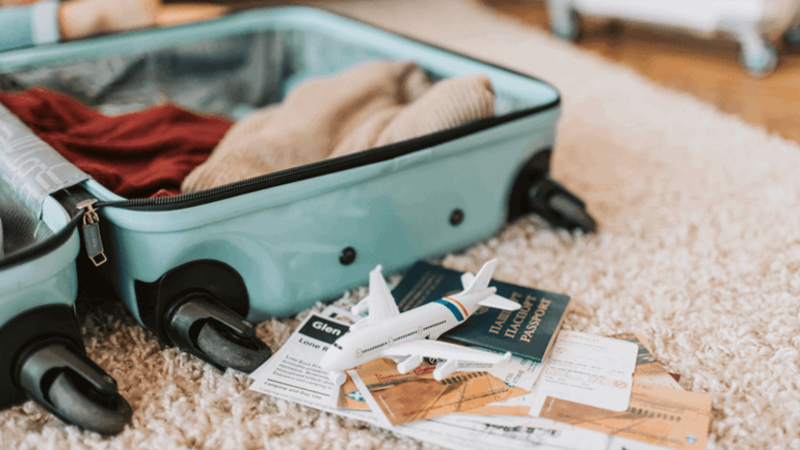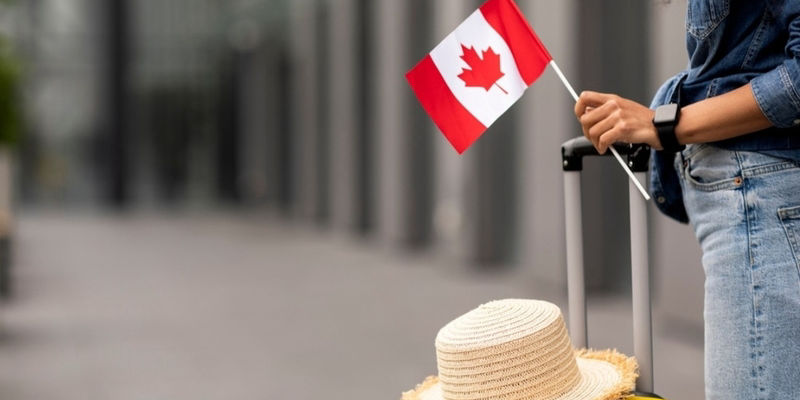Canada, often referred to as the Great White North, is frequently listed among the best nations for education due to its renowned academic institutions, cultural diversity, and high standard of living. The country continues to attract students from around the globe, even amidst the pandemic. Once you receive your acceptance letter, it’s time to compile a list of essentials for your move to Canada. It’s important to follow the airline’s regulations when purchasing these items. We’re here to provide you with a comprehensive packing list that we typically recommend to our students.
With the reopening of Canadian borders to students worldwide, there are numerous considerations to keep in mind before your departure. We present to you a detailed pre-departure checklist tailored for the pandemic era, containing all the necessary information and preparations to embark on your undergraduate experience in Canada.
Passport Power:
Ensure your passport is valid for at least 6 months after you land in Canada. It'll be your key to entry and a handy ID. Make copies for emergencies too!
Study Permit Secured:
Having a letter of acceptance from a Canadian college/university is your first step. Then, check if you need a study permit (IRCC) or qualify for the Student Direct Stream for faster processing. Apply online with all the required documents.
Travel Time:
Book your flight well in advance to give yourself time to settle in before classes begin. Research airports near your destination and learn about air travel regulations in Canada.
Stay Healthy, Stay Covered:
Find out about health insurance options offered by your school. If you're planning a shorter stay and exploring different areas, consider travel insurance too.

Medical Must-Haves:
Before you leave, get copies of your medical records, a list of current medications, and immunization records. Check with your school for any specific vaccination requirements.
Finding Your Home Away From Home:
Explore student housing options offered by your institution. If you prefer off-campus living, search social media or school message boards for student roommates.
Money Matters:
Consider opening a Canadian bank account beforehand to avoid foreign transaction fees. Research the Canadian banking system and explore opening options. Bring some Canadian currency for initial needs.
City Smarts:
Research the city you'll be living in! Learn about its culture, transportation, and key landmarks. Pack a handy city map – it's a lifesaver if your phone dies!
Weather Wise:
Research the typical weather conditions in your destination city. Pack accordingly to ensure you're comfortable throughout your stay.
Winter Wonderland Essentials:
Canada gets seriously cold! Temperatures can plummet in October/November, so if you're not used to snow and ice, be prepared to bundle up. Here's what you'll need to conquer those chilly Canadian winters:
Head & Hands:
Gloves: Look for insulated, waterproof gloves with good dexterity. Mittens are warmer, but can make handling things tricky. Consider a liner glove for extra warmth on the coldest days.
Hat: Invest in a warm hat that covers your ears. Wool or fleece are good options, and consider a hat with a built-in neck warmer for extra toastiness.
Scarf: A long scarf will help keep your neck and face warm. Choose a thick, knit scarf made from wool or fleece.
Bottoms:
Long Underwear: Thermal leggings or long johns are a lifesaver in cold weather. Look for moisture-wicking fabrics like merino wool or synthetic blends to keep you dry and comfortable.
Snow Pants: Waterproof and windproof snow pants are essential for playing in the snow or spending extended time outdoors. Look for insulated options for maximum warmth.
Jeans: While not ideal for extreme cold, a good pair of dark jeans can be a versatile option for milder winter days.
Layering Essentials:
Thermal Shirts: Thin, long-sleeved thermal shirts made from merino wool or synthetics are a great base layer. They trap warmth against your skin without being bulky.
Fleece or Wool Sweaters: A good quality fleece or wool sweater will provide additional warmth and insulation. Choose mid-weight options for layering.
Cozy Sleepwear:
Flannel Pajamas: Opt for flannel pajamas or fleece sleepwear to keep you warm and cozy on those cold winter nights.
Footwear:
Winter Boots: Invest in a good pair of waterproof, insulated winter boots with good tread. Look for boots with a high ankle for added warmth and support.
Thick Socks: Wool or thick synthetic socks are essential for keeping your feet warm and dry.
Outerwear:
Winter Jacket: A high-quality winter jacket is your defense against the cold. Look for a down-filled or synthetically insulated jacket with a waterproof and windproof outer shell. Consider features like a hood with a fur ruff, a long length to cover your hips, and plenty of pockets to keep your hands warm.
Extra Touches:
Rain Gear: Pack a rain jacket and umbrella if you're headed to a rainier city like Vancouver or Halifax. Even in winter, these cities can experience wet weather.
Hand and Foot Warmers: These disposable warmers can be a lifesaver on particularly cold days. Stick them in your pockets, gloves, or boots for an extra boost of warmth.
Neck Warmer: A neck warmer or gaiter can be a great way to keep your neck and face extra toasty. Look for options made from fleece or wool.

Bringing Your Essentials:
As an international student, you're allowed to bring personal belongings for your own use. Here's what you can pack:
- Clothes and personal items (think toiletries, etc.)
- Study materials: Books, laptop, etc.
- Hobbies: Sports equipment, musical instruments (if portable)
- Kitchen essentials: Basic cookware and small appliances
- Personal care items: Shampoo, medications, etc.
What to Leave Behind:
Canada has restrictions on certain items. Be sure to double-check before you pack:
- Illegal substances: Drugs like marijuana, cocaine, etc.
- Weapons: Firearms, ammunition, knives (unless with proper permits)
- Harmful materials: Hate propaganda, child pornography
- Counterfeit goods: Fake money, imitation designer items
- Fresh produce: Fruits, vegetables, plants (due to pest risk)
- Endangered species products: Ivory, fur, etc.
- Illegal items: Stolen goods, pirated CDs/DVDs
Settling In:
Your first few weeks will be busy! Here's how to make the most of them:
- Explore Campus: Get to know your surroundings – classrooms, cafeterias, student areas.
- Connect with Others: Join the International Student Club and make new friends.
- Student Resources: Find out about workshops and support services offered to international students.
- Student ID: Get your student ID – it'll be your key to campus facilities.
- Explore Student Services: Utilize the gym, bookstore, library, and other student services.
- Save Money by Cooking: Bringing familiar spices and ingredients will help you cook your favorite meals and save money on groceries.
In Sum
Ensuring a smooth study experience in Canada requires careful preparation and packing. Given the multitude of details to remember, it’s easy to miss or forget certain items. Schedule a counseling session with our educational advisors now to discover the assistance and guidance available to you!
